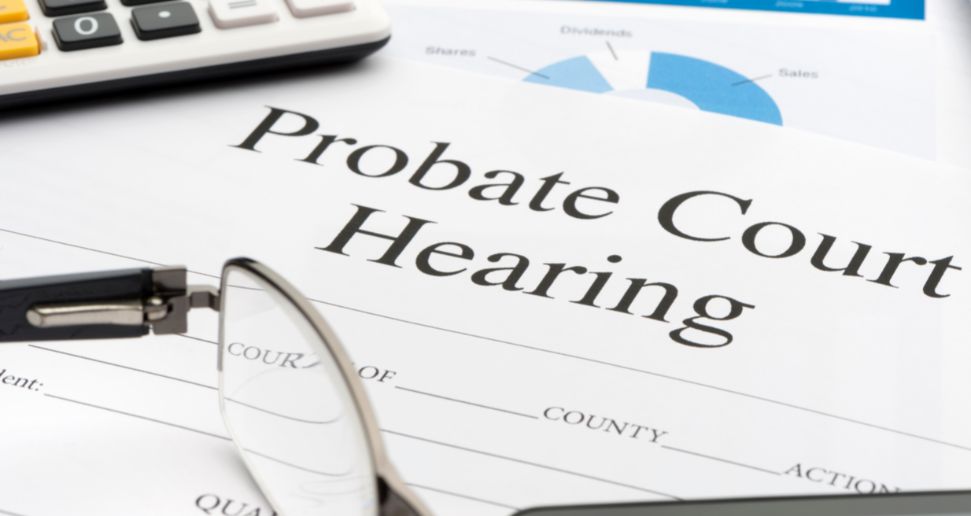Glendale Probate Administration Lawyer


Glendale Probate Administration Attorney
Probate is a legal process that is necessary for the distribution of a deceased person’s assets. In Glendale, California, the probate process begins with the filing of a petition with the court by a personal representative, also known as an executor or administrator. This petition starts the process of identifying, collecting, and distributing the deceased person’s assets in accordance with their will or the laws of inheritance. It also settles any outstanding debts or taxes the deceased person may have.
Understanding the probate process can be challenging. With the help of a qualified and experienced probate attorney, you can ensure that the deceased’s assets are distributed according to their wishes. They can also make sure that the process is as smooth as possible.
Barry Law Group: Your Glendale Probate Administration Attorneys
At Barry Law Group, our Glendale probate administration attorneys are experts in all aspects of the California probate process. Our Glendale probate lawyers are experienced in trust administration, probate administration, and other related areas. We can help you understand the complex legal procedures involved in probate. Our firm can work with you to ensure that your loved one’s wishes are carried out in the most efficient and cost-effective manner. We understand how important it is to our clients that their probate process is handled correctly and efficiently. Therefore, we strive to provide personalized attention and quality legal representation.
What Assets Are Commonly Distributed Via Probate?
Several types of assets are commonly distributed through probate. Each one has its own unique characteristics and requirements.
- Real property, such as houses and land, is one of the most valuable assets that may be subject to probate. This includes any real estate that the deceased person owned at the time of their death, such as their primary residence, vacation home, or rental properties. These assets must be appraised to determine their value. Any mortgages or liens on the property must be paid off before the property can be distributed to the beneficiaries.
- Personal property, such as vehicles, jewelry, and furniture, is another type of asset that may be distributed through probate. This includes any physical possessions the deceased person owned, such as artwork, collectibles, and household items. These assets are generally appraised to determine their value. They are then distributed to the beneficiaries according to the terms of the deceased person’s will or California law.
- Financial assets, such as bank accounts, investments, and insurance policies, are also commonly distributed through probate. This includes any cash, stocks, bonds, or other financial assets that the deceased person owned. These assets must be located, appraised, and then distributed to the beneficiaries. These people will be outlined in any trust or will the deceased person may have had.
- Business interests are also subject to probate. This includes any ownership interest in a business, a partnership, or any other business-related assets. The value of these assets must be determined and distributed under the court’s direction.
- Finally, any debts or liabilities that the deceased person may have had must be settled through probate. This includes credit card debt, medical bills, taxes, and any other debts that the deceased may have had. The estate executor ensures that all debts are paid off. This must occur before any assets can be distributed to the beneficiaries.
These are some of the most common assets that are distributed through probate, but there may be other types of assets as well. It is important to work with a qualified probate attorney who can help you understand the process. This can ensure that your loved one’s wishes are properly carried out.
How Can Glendale Probate Attorneys Help?
Glendale probate attorneys can assist in various ways during the probate process. Here are a few examples:
- Filing paperwork and navigating the court system: A probate attorney can handle the legal paperwork and filings required for probate and represent the estate in court.
- Identifying and valuing assets: Probate attorneys can assist in identifying and valuing the assets of the deceased person’s estate. This is necessary to distribute assets.
- Managing creditors and debt: A probate attorney can help manage any outstanding debts or claims against the estate. They can also communicate with creditors on behalf of the estate.
- Interpreting the will: If the deceased person left a will, a probate attorney can help to interpret its terms. This can ensure that they are carried out according to the deceased person’s wishes.
- Handling disputes: Probate attorneys can assist in resolving disputes that may arise during the probate process. Such disputes may occur between beneficiaries or over the validity of a will.
The probate process’s speed and efficiency can depend on various factors. Having an experienced probate attorney can make it smoother and less stressful. Avoid unnecessary delays and stress with representation by qualified Glendale probate attorneys.
What Common Disputes Arise During Probate?
During the probate process, disputes can arise for a variety of reasons. Here are a few examples of common disputes that may arise:
- Will contests: A will contest is a legal challenge to the validity of a will. This can happen if someone believes that the will was not executed properly or if the person who made the will was not of sound mind at the time.
- Disputes over assets: Disputes can also arise over the distribution of assets, such as if beneficiaries believe that they are entitled to a larger share of the estate. They might also argue that certain assets were not properly included in the estate.
- Claims of undue influence or fraud: Disputes can also arise if someone believes that the deceased’s wishes were not followed because another person unduly influenced them. They may also contend that the deceased was fraudulently induced to make certain provisions in their will.
- Beneficiary exclusion disputes: Disputes may arise if certain beneficiaries were excluded from the will. They might also object if the will does not provide for certain family members or dependents.
- Executor disputes: Disputes can also arise between the executor and beneficiaries or other interested parties over the administration of the estate. They may accuse the executor of not properly managing the estate.They may believe that the executor is not providing beneficiaries with adequate information about the estate.
- Disputes over debts and liabilities: Disputes can arise over the payment of debts and liabilities of the estate. The creditors may believe that they are entitled to a larger share of the estate than what is provided for in the will. The beneficiaries might feel that the executor is not properly managing the estate’s debts.
FAQs About Glendale, CA Probate Administration Law
What happens to a person’s digital assets during probate?
With the increasing use of technology in our daily lives, digital assets have become a significant part of an individual’s estate. Digital assets include online accounts, such as email and social media accounts, digital currency, and online storage accounts. These assets may have monetary value, sentimental value, or both. During probate, the executor of the estate will be responsible for identifying and valuing these assets. They must then distribute them according to the terms of the will or the state’s laws. However, accessing these assets can be difficult because passwords and terms of service agreements protect them. It may require the assistance of an attorney who specializes in digital assets and probate administration.
Can a will be challenged after the death of the testator?
Yes, a will can be challenged after the death of the testator. This is known as a will contest. Contests of wills can be brought by any interested party, such as a beneficiary or potential heir. They can be based on various grounds, such as fraud, undue influence, or a lack of testamentary capacity. Contests can be time-consuming and costly. It is important to have an attorney experienced in probate litigation to help navigate the process.
Can a living trust avoid probate?
Yes, a living trust can avoid probate. A living trust is a legal document that allows a person to transfer ownership of their assets to a trustee while they are still alive. The trust becomes the legal owner of the assets. Upon the person’s death, the assets pass directly to the beneficiaries named in the trust without the need for probate. This can save time, money, and provide privacy, as probate is a public process.
Can a person’s assets be frozen during probate?
In some cases, a court may order that a person’s assets be frozen during probate. This can happen if there is a dispute over the assets or if the executor or administrator of the estate is suspected of mismanagement or fraud. A court may also order that certain assets be held in trust to ensure they are not wasted or dissipated before they can be distributed to the beneficiaries. An attorney experienced in probate law can advise on the best course of action if assets are frozen. They can represent the interests of either the beneficiaries or the executor in court.
Contact Barry Law Group Today
If you have questions about probate, or need help with a dispute or will contest, contact the experienced attorneys at Barry Law Group. We look forward to helping you navigate the probate process with speed, skill, and efficiency.
Success of Your
Legal Matter.
Barry Law Group is comprised of attorneys and longtime staff members who are committed to the success of your legal matter. The firm understands that for most litigation is uncharted worrisome and often terrifying.


